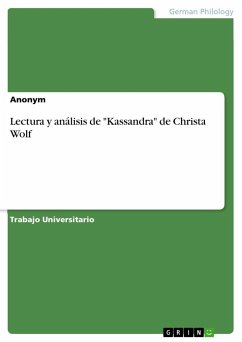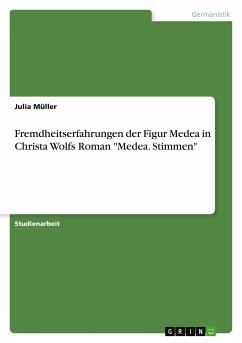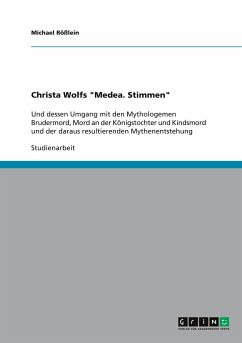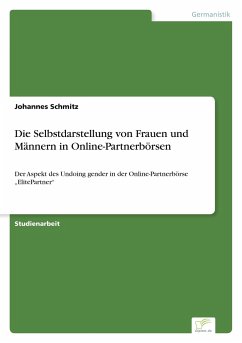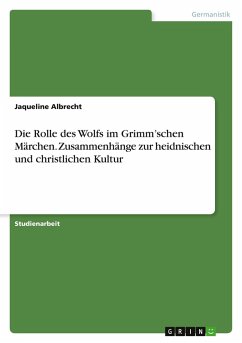
Frauen zwischen Männern. Christa Wolfs "Kassandra" als feministische Kritik an der DDR

PAYBACK Punkte
0 °P sammeln!
Bachelorarbeit aus dem Jahr 2020 im Fachbereich Germanistik - Neuere Deutsche Literatur, Note: 2, Københavns Universitet, Sprache: Deutsch, Abstract: This thesis examines whether patriarchy and homosocial relations are represented in Christa Wolf's novel "Kassandra" from 1983, as well as if the book can be read as a feminist critique of the GDR. The thesis explains Claude Lévi-Strauss's understanding of the theoretical concept of patriarchy, as well as Eve Segdwick's theory of homosociality. These concepts describe the relations between men, in which women are made into objects that are used...
Bachelorarbeit aus dem Jahr 2020 im Fachbereich Germanistik - Neuere Deutsche Literatur, Note: 2, Københavns Universitet, Sprache: Deutsch, Abstract: This thesis examines whether patriarchy and homosocial relations are represented in Christa Wolf's novel "Kassandra" from 1983, as well as if the book can be read as a feminist critique of the GDR. The thesis explains Claude Lévi-Strauss's understanding of the theoretical concept of patriarchy, as well as Eve Segdwick's theory of homosociality. These concepts describe the relations between men, in which women are made into objects that are used as a medium between men. Next, the theory of homosociality and the concept of patriarchy are used in the analysis of the relationships of the male characters in this work. Against this background, it is discussed how the objectification of women, that occurs in the book, turns men into subjects in a homosocial circle. Furthermore, the thesis explains the historical, as well as the biographical context in order to discuss whether parallels can be drawn between the character, Kassandra's position in Trojan society, and the author's own position as a woman in the GDR. Through a reading of the work, it is interpreted and analyzed whether these theories are represented in Wolf's novel, including how Segdwick's theory of homosociality can describe relationships between men in the book. Based on the analysis of the thesis, it can thus be concluded that there is a clear feminist problematization in the novel, and that many of the experiences of the character Kassandra can be compared to the author¿s and can thus be seen as a feminist critique of the GDR on the basis of the historical and biographical context that can be read comparatively with the book.





